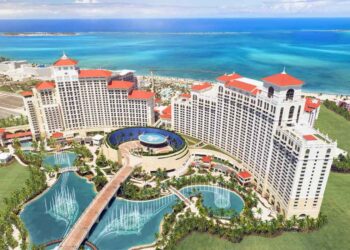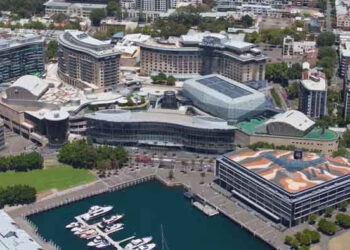Japan’s Prime Minister Shinzo Abe has added casino site tours to his Singapore itinerary this week, but back home the much-anticipated bill he supports to legalize the industry appears to be dead for the current parliamentary session and quite possibly for this year.
Mr Abe plans to visit Resorts World Sentosa and Marina Bay Sands while in the city-state to deliver Friday’s keynote address at the Asia Security Summit, according to a report in the English-language Japan News, which said the prime minister is especially interested in learning more about Singapore’s strict approach to regulation and the mitigation of gambling’s social costs.
Friday also has been identified as the last day available to a committee of the Diet to review the casino legalization bill his governing Liberal Democratic Party introduced in the lower house of the Japanese parliament in December with a view to securing passage before the legislature’s current session ends on 22nd June.
The latest, however, according to a representative from the cabinet committee in charge of bill discussion who spoke with The Wall Street Journal, is that the committee won’t have time to address the bill because it has to handle another item regarding the country’s Atomic Energy Commission. As a result, lobbyists and lawmakers are saying they believe it will be nearly impossible for the bill to make the June deadline, mainly because bills traditionally need to be sent to the upper House of Councillors for their consideration at least 20 days before the session ends.
Toru Mihara, an adviser to a 200-member Diet caucus pushing the bill under the leadership of the LDP, told the Journal he remained optimistic the bill would still be passed, just “not in the near future”.
And that could include 2014, according to caucus member Mito Kakizawa. “Since the coming fall session is short, it’s unlikely we can pass the bill there,” he said. “That means we will likely have to wait until next year’s spring session.”
The LDP and its coalition partners are promoting destination-scale casinos as a tourism-boosting tonic for Japan’s sluggish economy and a complement to the 2020 Summer Olympics Games in Tokyo, and if the current bill were to get to a vote, it would likely pass easily due to the coalition’s strong legislative majority.
Some estimates project that a 12-casino market could be worth as much as US$40 billion in gaming revenue a year over the next decade, a prospect that has attracted an A-list of global operators—Las Vegas Sands, Wynn Resorts, Melco Crown Entertainment, Genting and MGM Resorts International among them—with plans to spend billions to be part of it.
At the same time, casinos remain a sensitive issue among the Japanese population as a whole, and lawmakers have been reluctant to spend too much political capital on it, especially with bills addressing bigger issues such as defense and nuclear power elbowing it out as national priorities.
And the process of establishing the industry is complicated and will require at least two pieces of legislation, according to experts: the current bill, which would end a longstanding legal ban on casinos, and one detailing a framework for licensing and regulation.
Industry hopes have centered on 2014 for legalization and 2015 for the structural bill, but those are dimming rapidly, and the way things are moving makes it increasingly unlikely any resort will get licensed, built and opened in time for the Olympics.






























